Alexander Crummell was born in New York. His father was a freed slave, reputedly an African prince brought from Africa to work for wealthy merchant in the city, and his mother was a free-born woman from Long Island. It is not known where in Africa their families originated. Although Crummell’s father was illiterate, his parents had aspirations for their five children and in the 1820s the young Alexander attended one of the African Free Schools, primary schools set up by New York abolitionists to educate the children of freed slaves. There he was encouraged by an Englishman called Charles Andrews, a stern disciplinarian.
Many #black children left formal education at about 14 to begin work in lowly paid trades, though Crummell’s classmates were a gifted generation: one became a teacher, one a doctor, and several became ministers. Against all the odds, Crummell and two black friends were awarded places at a secondary school in New Hampshire. The local community was outraged; the school was attacked, the school house was dragged into a swamp and its three black students were driven out of town.
“Although #slavery had been abolished in the Northern states of the US, prejudice and discrimination had not, and antislavery opinions were often unpopular. Crummell and his friend Henry Highland Garnet had spoken at a public antislavery meeting, and this may have inflamed the tensions in the town. The experience was deeply shocking, but Crummell and his friends persevered, moving on to a more productive experience at a school in New York,” said Meer.
Crummell and his family embraced the Episcopal Church. This was significant because it opened connections with Anglicans in Britain, and particularly because the church had strong roots in 19th-century Cambridge. The Episcopal connection would later smooth Crummell’s own path to Cambridge. If he had been a Methodist or a Presbyterian, like many of his classmates, he would not have been able to take a Cambridge degree. He also had a brilliant intellect and formidable determination. But these qualities alone would not have been enough to propel him to university and provide him with the resources he needed to complete a degree. Crummell would win powerful mentors and sponsors in Britain who arranged preparatory tuition and secured the offer of a place at Queens’ College.
Despite his intelligence, steely determination and connections, Crummell’s path to becoming a minister was far from easy: he was denied admission to the General Theological Seminary in New York and given only unofficial access to classes at Yale Theological Seminar. Eventually he was ordained, and in 1848 came to Britain to raise funds for his New York church. A group of British evangelicals arranged to sponsor him at Cambridge, organising preparatory training and an interview at Queens’ College, where he joined much younger students as a 30-year-old man, with a wife and three children.
Crummell’s time at Cambridge came at a low point in terms of what the university offered its students. Like others, Crummell would have had scant teaching and would have supplemented lectures with private coaching. Students (men only until 1869) were presumed to be Anglicans and were ranked by the strata of society they came from. Noblemen, fellow commoners, pensioners and sizars wore different gowns, paid different fees and had different rights. Crummell was a pensioner – one rank up from the sizars who waited on richer students.
Cambridge was, however, an important centre for the anti-slavery movement. Thomas Clarkson and William Wilberforce both studied at Cambridge – they were influenced among others by the abolitionist Master of Magdalene, Peter Peckard. Their legacy made Cambridge a receptive environment and Crummell held the university in high regard, writing in 1847 that “perhaps no seat of learning in the world… has done more for human liberty and human well-being than this institution”.
Many African-American travellers to Britain at the time commented that there was less overt prejudice in Britain than in the US, and certainly it must have been a relief to get away from the overt segregation of facilities Americans called ‘Jim Crow laws’. But there were also examples of patronising, thoughtless, and even hostile reactions.
Archives of church records and correspondence portray Crummell as a complex, and tricky, character, and his story embodies many contradictions. Despite his passionate championship of black potential, he could see no virtues in traditional African cultures. He made sure that his two daughters received higher education – yet he seems to have treated his first wife with cruel disdain.
“Crummell may have been influenced by the distant and authoritarian teacher and patron figures he encountered as a child, and he was certainly embittered by repeated rejection, as a student, as a priest in training, and later in the posts he applied for. He was touchy with colleagues and dictatorial with his family and congregations. And yet, by the end of his life, the younger writer WEB Du Bois was holding up Crummell as an example of grace and forgiveness,” said Meer.
In Cambridge, Crummell seems to have been a minor celebrity. He met prejudice, but also affection, and deep sympathy when his four-year old son died in an accident. He also remained active outside his studies, working as a curate in Ipswich, and giving antislavery lectures all over the country. On leaving Cambridge he spent nearly 20 years in Liberia as churchman and teacher. He was one of the first professors at Liberia College, which is now the University of Liberia. On a trip back to New York in 1861, Crummell was greeted by the black paper, the Anglo-African, with the headline ‘A Hearty Welcome Home’, and the paper carefully noted that he was ‘BA of Cambridge University, England’. For a black man, and one of humble origins, to have studied at Cambridge was remarkable and sent a signal to others that top institutions like Cambridge were not utterly beyond reach.
Meer said: “Crummell’s significance, politically and historically, lies in his championship of education, his commitment to freedom and his opposition to materialism. His writing on the value of higher education would not look out of place in today’s debates about whether a degree benefits just an individual or a whole society. In today’s environment his views on Christianising Africa would appear Eurocentric and colonialist – yet he made a significant contribution to the development of Liberia, and what he would have called ‘the elevation of his race’.”
– See more at: http://www.cam.ac.uk/research/news/the-remarkable-story-of-alexander-crummell##sthash.S9kFwdyN.dpuf





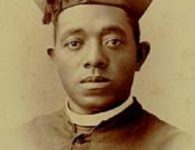
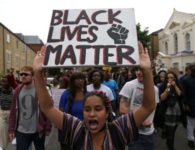

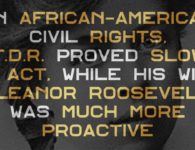
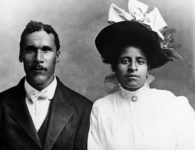
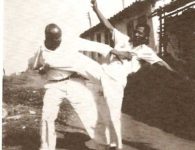
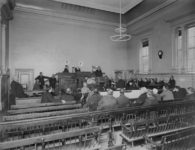
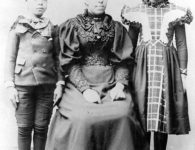
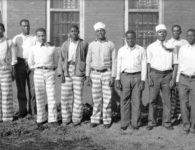
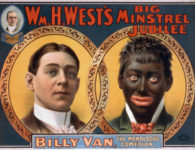
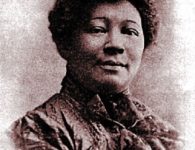

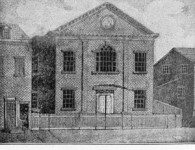
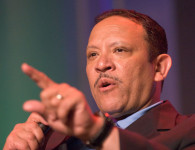
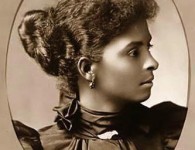

6 Comments
Interesting
[…] post We Did And They Hid It: The Remarkable Untold Story Of Alexander Crummell appeared first on Black […]
Attractive component of content. I just stumbled upon your website and in accession capital to
claim that I acquire in fact loved account your blog posts.
Anyway I’ll be subscribing on your feeds or
even I fulfillment you access consistently rapidly.
Magnificent beat ! I would like to apprentice while you amend your website, how could i subscribe for a blog website?
The account helped me a appropriate deal. I were a little bit familiar of this your broadcast provided vivid
transparent concept
Thanks for one’s marvelous posting! I really enjoyed reading
it, you are a great author. I will be sure to bookmark your
blog and definitely will come back later on. I want to encourage
that you continue your great work, have a nice day!
Hello there! I could have sworn I’ve visited this blog before but after browsing through a few of the articles I realized
it’s new to me. Regardless, I’m definitely pleased I stumbled
upon it and I’ll be book-marking it and checking back frequently!